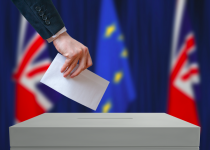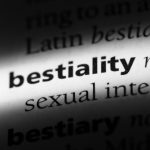Brexit Vote Leads to Surge in Hate Crimes

Since Britain’s vote to leave the European Union, police in London have made 75% more arrests for hate crimes.
In weeks before and after the vote, the number of reported hate crimes has surged by 42 per cent – with 3076 incidents in the fortnight from June 16, an increase of 915 offences on the same period last year.
Racist attacks reached their pinnacle on June 25, the day after the referendum result was confirmed – when 289 incidents were reported across the United Kingdom, equivalent to 12 per hour. The most common offences were physical assaults and verbal abuse.
The movement to leave the EU, which focused on the issue of immigration, is reported to have spurred right-wing nationalist groups into action.
At a recent news conference, London Mayor Sadiq Khan said:
“I’m afraid you can’t escape the link between the referendum and a surge in racial incidents”.
Recent Hate Crime
“I have been shocked and disgusted at some of the cases of racial or anti-immigrant abuse that have been reported this week,” Sara Thornton, Head of the National Police Chiefs’ Council said.
“Migrants are reporting verbal abuse, negative social media commentary including xenophobic language, anti-migrant leafleting and, in very limited numbers, physical assaults.”
Right-wing groups are making the most of England’s anti-immigration sentiment, with one distributing leaflets saying “no more Polish vermin”. Graffiti demanding that Poles leave the United Kingdom was later discovered at a Polish Cultural Centre in London.
Norfolk police are treating arson on a shop selling European and Romanian produce as a hate crime. And in London and Westminster, police have been called to mosques and Islamic centres after hate mail was sent containing suspicious white powder.
The Twitter handle #PostRefRacism has captured many examples of racist hate crimes committed after the Brexit vote. In one case, vandals wrote ‘Muslims are scum’ on a refugee family’s front door in Cardiff and left knives stabbed in their lawn.
Political Discourse
The anti-immigration campaign to leave the EU has been accused of stoking xenophobia and racism, with many Britons blaming immigrants for taking their jobs and putting pressure on public services.
The dangerous and divisive rhetoric of the Leave campaign was highlighted in the wake of the murder of British politician Jo Cox, who was a strong supporter for remaining in the EU. Jeremy Cliffe, a columnist at The Economist, wrote that the campaign had been:
“more vitriolic, more divisive, more angry than I think anything we’ve seen in Britain for decades — much more so than at a general election.”
A particularly inflammatory piece of political discourse was an ad depicting a column of Middle Eastern migrants walking through Eastern Europe beneath the words ‘Breaking Point’. UK Independence Party (UKIP) leader Nigel Farage unveiled the poster just hours before Cox was killed.
Over the past 20 years, the percentage of Britons ranking “immigration/race relations” as among the country’s most important issues has gone from near-zero to 45 percent. As a result, anti-immigrant populism has become politically potent – with the UK Independence Party (UKIP) has moved from a fringe party in the early 1990’s to receiving the third-largest national vote total in the country.
Political Response
Prime Minister David Cameron has promised extra measures to reduce the wave of hate crimes currently affecting the UK.
“Let’s remember these people have come here and made a wonderful contribution to our country,” he said. “We will not stand for hate crime or these kinds of attacks, they must be stamped out.”
The government has promised extra funding to tackle hate crime, to improve systems of reporting and to provide extra security at vulnerable institutions such as mosques and community centres.
Ms Thornton has requested that all British police forces provide weekly data on hate crimes so the country can acknowledge the true scale of the problem, and tackle it more effectively.
Closer to Home…
The events in Britain are a timely reminder that political discourse and media reporting can trigger racist attacks if left unchallenged.
Indeed, the recent surge in anti-Islamic hate crimes in Australia is part of a wave of nationalist sentiment, which has led to the election of politicians like Pauline Hanson.
It wasn’t too long ago that inflammatory comments by radio shock-jock Alan Jones led to the Cronulla riots; indeed, Jones directly called-upon Australians to head to Cronulla to engage in violence against “Lebanese Muslims”. Despite his direct incitement of violence, Jones somehow avoided being charged by police with any offence.
In 2015, the NSW Administrative Decisions Tribunal found that Jones breached section 20C of the Racial Discrimination Act by “incit[ing] hatred, serious contempt and severe ridicule of Lebanese Muslims” during on-air comments in April 2005.
Jone had described Lebanese Muslims as “vermin” who “rape and pillage a nation that’s taken them in”.
While immigration policy forms a legitimate part of political discourse, it is important to differentiate between free speech and hate speech – the later being used to dehumanise and incite violence against segments of society.






